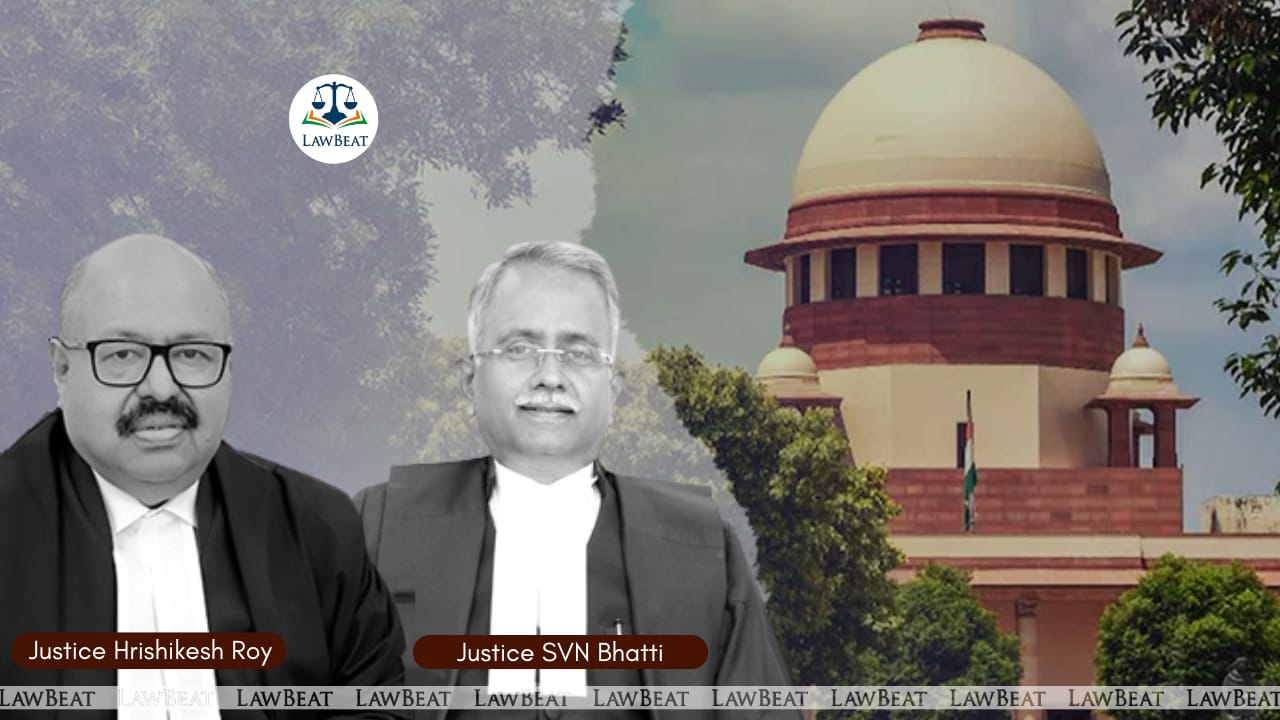‘Don’t Sensationalise’: SC Rejects Plea to Expunge 'Love Jihad' Remarks by Bareilly Judge

While asking the petitioner to withdraw the case, the Court reiterated that the petitioner in the instant case has no locus standi to file the petition.
While reprimanding the petitioner, the Supreme Court of India today refused to entertain a plea seeking to expunge the 'Love Jihad' remarks made by a judge of the fast-track court in Bareilly.
"Who are you and how are you concerned with this matter? It's not correct. Completely sensationalising such matters is not right. You are a busybody; you have no business here. You can’t file an Article 32 petition," Justices Hrishikesh Roy led bench said.
The bench, also comprising Justice SVN Bhatti, further remarked, "Counsel, assuming a particular conclusion is warranted from the evidence available before the sessions court and the conclusion is recorded, should it be expanded into an independent matter like this? We can’t examine whether this is the first time the petitioner is coming before this Court or if they are regularly filing such petitions."
In October 2024, a fast-track court in Bareilly, Uttar Pradesh, had sentenced a 25-year-old Muslim youth, Mohd Aalim, to life imprisonment for illegal conversion, under charges including rape, criminal intimidation, and voluntarily causing hurt. A complaint was filed by a 22-year-old woman in May 2023, who alleged that Aalim had initially introduced himself as Anand when they met at a coaching class in Bareilly in 2022. Aalim also had the 'kalawa' tied on his wrist.
Additional District and Sessions Judge Ravi Kumar Diwakar, in a 42-page order, emphasized that the main goal of “love jihad” is to establish dominance over India under the guise of a demographic war.
Court highlighted that "Muslim men systematically target Hindu women for conversion to Islam through marriage, often by pretending to love them." It linked the issue to an international conspiracy by anarchist elements aiming to disrupt India's unity and integrity.
The judgment further warned of the dangerous implications of illegal conversions, stating that if the Indian government does not intervene in time, the country could face serious consequences.
It noted that love jihad uses various methods, including psychological pressure, derogatory remarks about gods, and temptations like marriage and jobs, to target non-Muslim women, particularly from weaker sections such as the Scheduled Caste, Scheduled Tribe, and OBC communities. The court drew comparisons to Pakistan and Bangladesh, warning that similar conditions could arise in India if the issue is not addressed promptly.
The order also pointed out the significant financial resources involved in love jihad, suggesting possible foreign funding in this case. It stressed that illegal conversions pose a serious threat to the country’s unity, integrity, and sovereignty.
The judge, who had earlier called for a videographic survey of Varanasi’s Gyanvapi premises and the sealing of the wuzukhana area in 2022, reiterated that illegal conversions through love jihad are not isolated incidents but part of a larger syndicate-driven effort to destabilize India.
"Illegal conversions through love jihad are carried out or made to happen by some anarchist elements of a particular religion or they cooperate in it or are involved in the conspiracy. Some anarchist elements get the above acts done, but the entire religion gets defamed. There is enough evidence for love jihad", wrote the judge.
Case Title: Anas vs. Union of India
